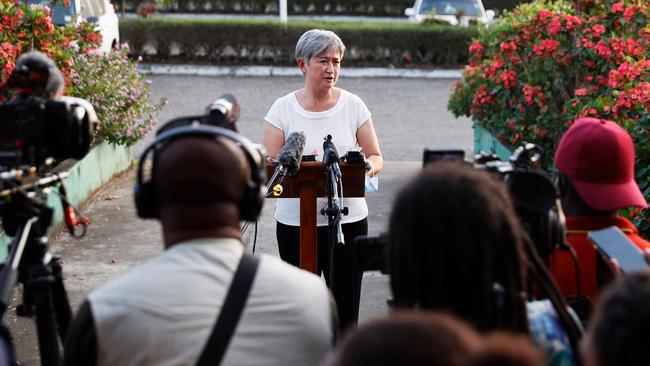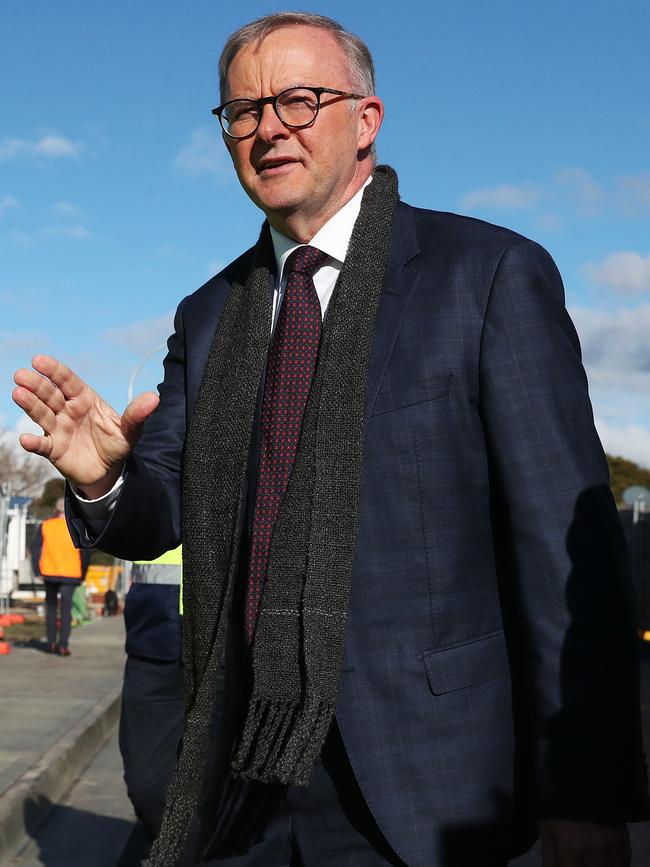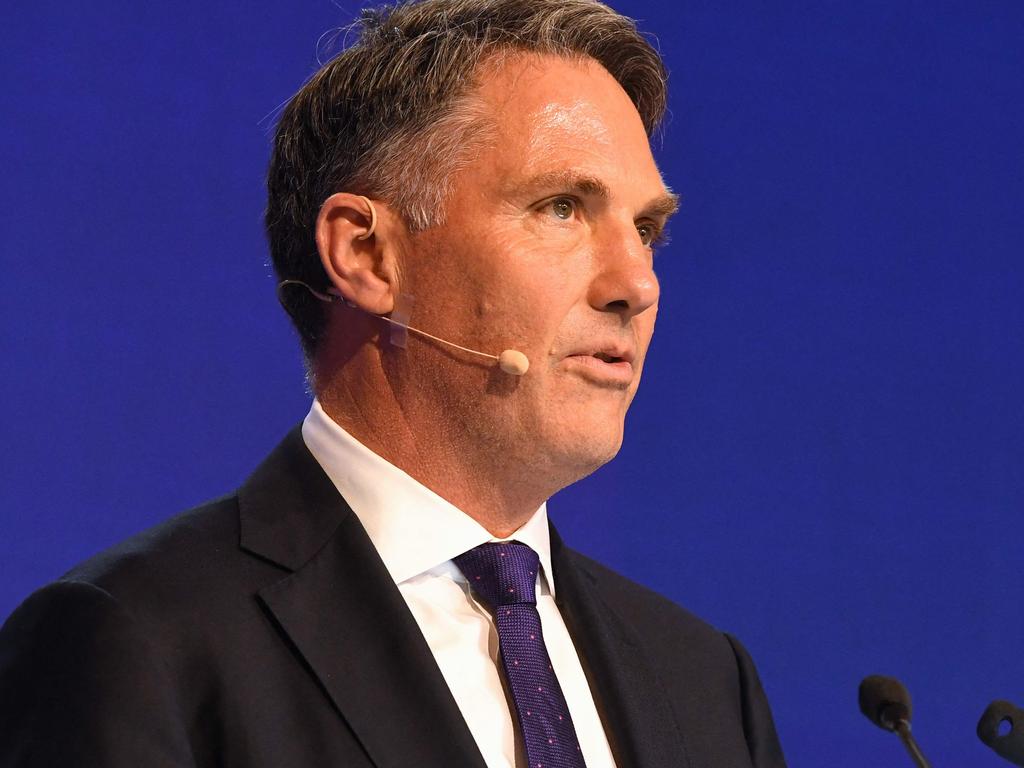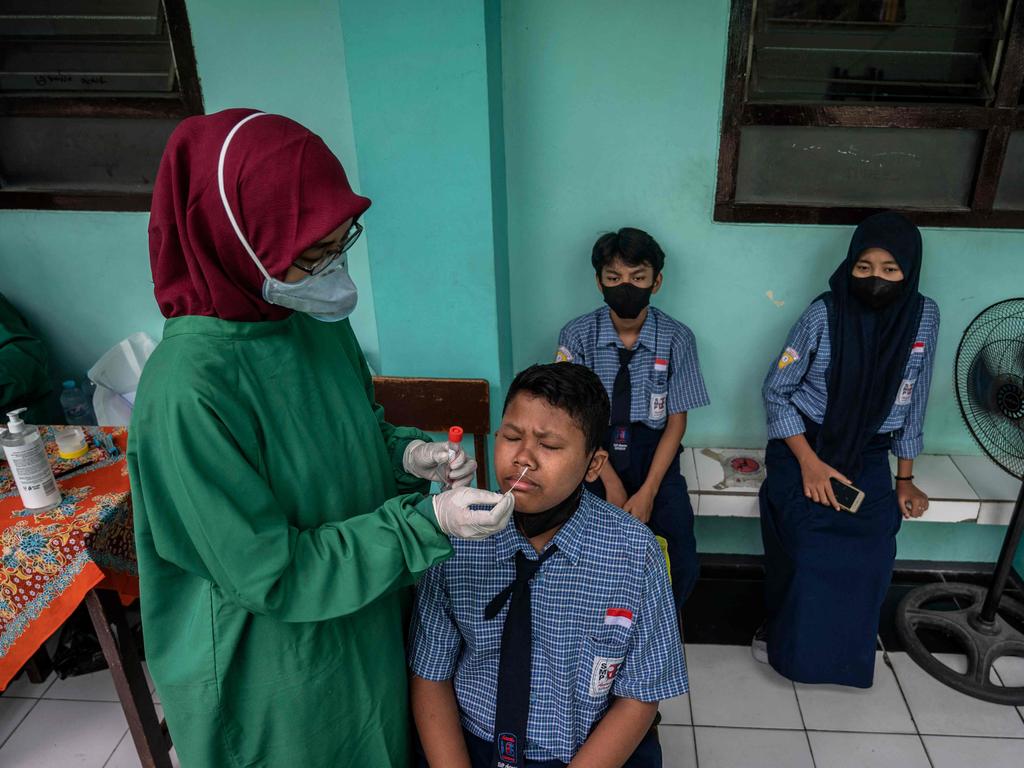Anthony Albanese to push unity on China at Pacific Islands Forum
Anthony Albanese will urge regional leaders at the Pacific Islands Forum to stand together and guard against coercion and threats to their sovereignty.

Anthony Albanese will urge regional leaders at the upcoming Pacific Islands Forum to stand together and guard against coercion and threats to their sovereignty, relying on the Pacific’s tradition of consensus decision-making to hold the line against further Chinese security agreements.
It’s understood the Albanese government believes the Solomon Islands-China security pact is unlikely to be rolled back, and is banking on the collective efforts of Pacific nations to constrain the way it is implemented.
The government was heartened by last month’s rejection by 10 Pacific nations of a proposed security agreement with China, on the grounds the broader region needed to consider it before a decision could be reached.
The Prime Minister will attend this year’s PIF meeting in mid-July with Foreign Minister Penny Wong. They are expected to be warmly welcomed after committing Australia to an accelerated path to net-zero emissions.
The government is being careful to leave the Pacific to chart its own course, but will call on PIF leaders to come to a unified position on safeguarding regional security that excludes Chinese involvement.

Senator Wong, who has visited five Pacific Island countries since the election and is preparing to embark on a trip to Southeast Asia next week, told The Australian China would continue to seek greater influence in the Pacific.
But she said the region, if unified, could shape the way it engaged with the aspiring superpower. “Things will not go back to where they were in the Pacific,” Senator Wong said.
“This is fundamentally the foreseeable result of a more assertive China trying to maximise its power.”
But she said Australia and its Pacific partners “can’t be distracted by what others are doing”.
“We need to stay focused and disciplined about what we are doing,” Senator Wong said.
“We have the view that security of the Pacific is the responsibility of the Pacific family.
“We all need to work to support and reinforce Pacific unity – that’s a message I have received loud and clear in my travels. So far, I have found a lot of resonance with our commitment to listen, our commitment to work within the Pacific family, and to support the unity of the PIF.”
Chinese Foreign Minister Wang Yi returned to Beijing last month without the 10-nation Pacific security agreement it had hoped for, after a backlash against the deal led by Fiji Prime Minister Frank Bainimarama and Samoa’s Prime Minister, Fiame Naomi Mata’afa.
“The Pacific needs genuine partners, not superpowers that are super-focused on power,” Mr Bainimarama said at the time.
Senator Wong said: “The reality is, everyone’s sovereign decisions can affect the security of others. The PIF needs to operate as the primary regional architecture that it is.”
The new Foreign Minister has moved rapidly to renew relationships across the Pacific, visiting Fiji, Samoa, Tonga, Solomon Islands and New Zealand since she was sworn into the job.
She also visited Japan and Indonesia with the Prime Minister, and will next week visit two Southeast Asian countries. One is expected to be her country of birth, Malaysia.
Senator Wong said she hoped she had brought her own brand of “authenticity” to the job, mixing with everyday people and engaging with local media, in contrast to the typical behaviour of Chinese officials. This was on display in Solomon Islands, where she visited the community of Honiara suburb Burns Creek, telling residents “you can count on Australia to be your partner”.
“We think of you as family. And as family we try to look after each other and care for each other,” she said. “We try to care for your security, your prosperity and your health.”
Senator Wong said Australia was a relatively smaller player in Southeast Asia, but would work with the nation’s partners to try to influence the “reshaping of the region”.
“And all of the countries of Southeast Asia in their different ways are navigating their own interests at this time,” she said.
“What we have to do is work as hard as we are able to, to maximise our engagement, our influence, our voice, in the reshaping that is happening.”
Senator Wong said Australia would work particularly through Indonesia, Australia’s closest ASEAN partner, which was why the Albanese government was working hard with President Joko Widodo to make the country’s hosting of the G20 summit in November a success.
Her comments came as Chinese Foreign Ministry spokesman Wang Wenbin declared Beijing‘s trade sanctions on $20bn worth of Australian exports were “legitimate, lawful and beyond reproach”.
Mr Wang said China’s stance was “strictly consistent with Chinese laws and regulations and (World Trade Organisation) rules, with a view to protecting the legitimate rights and interests of relevant industries in China and the safety of our consumers” .
Senator Wong said Australia’s position was clear. “Those sanctions should be lifted,” she said.
Australia argues the sanctions are in violation of WTO rules, and has lodged challenges on the bans on Australian wine and barley.






To join the conversation, please log in. Don't have an account? Register
Join the conversation, you are commenting as Logout